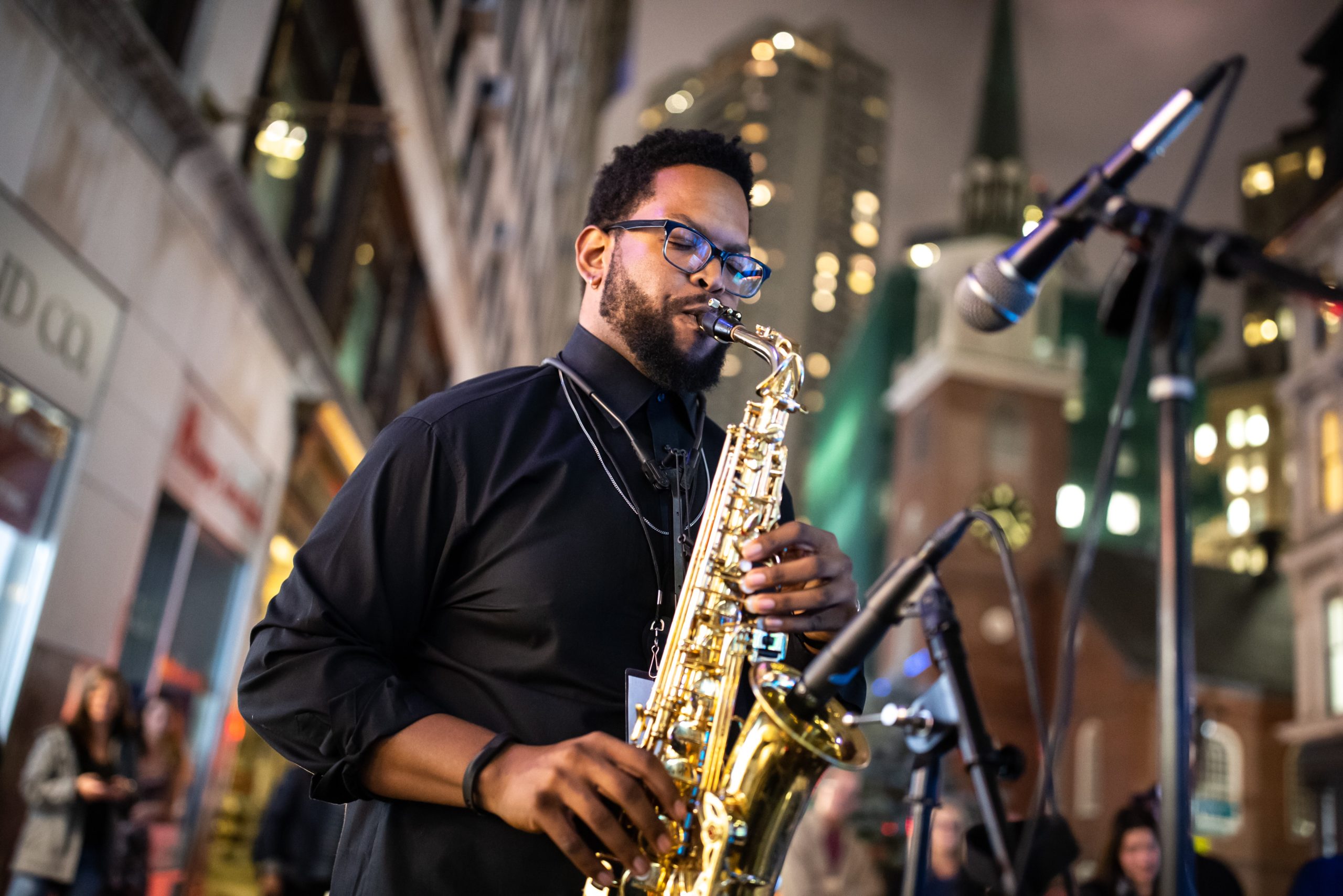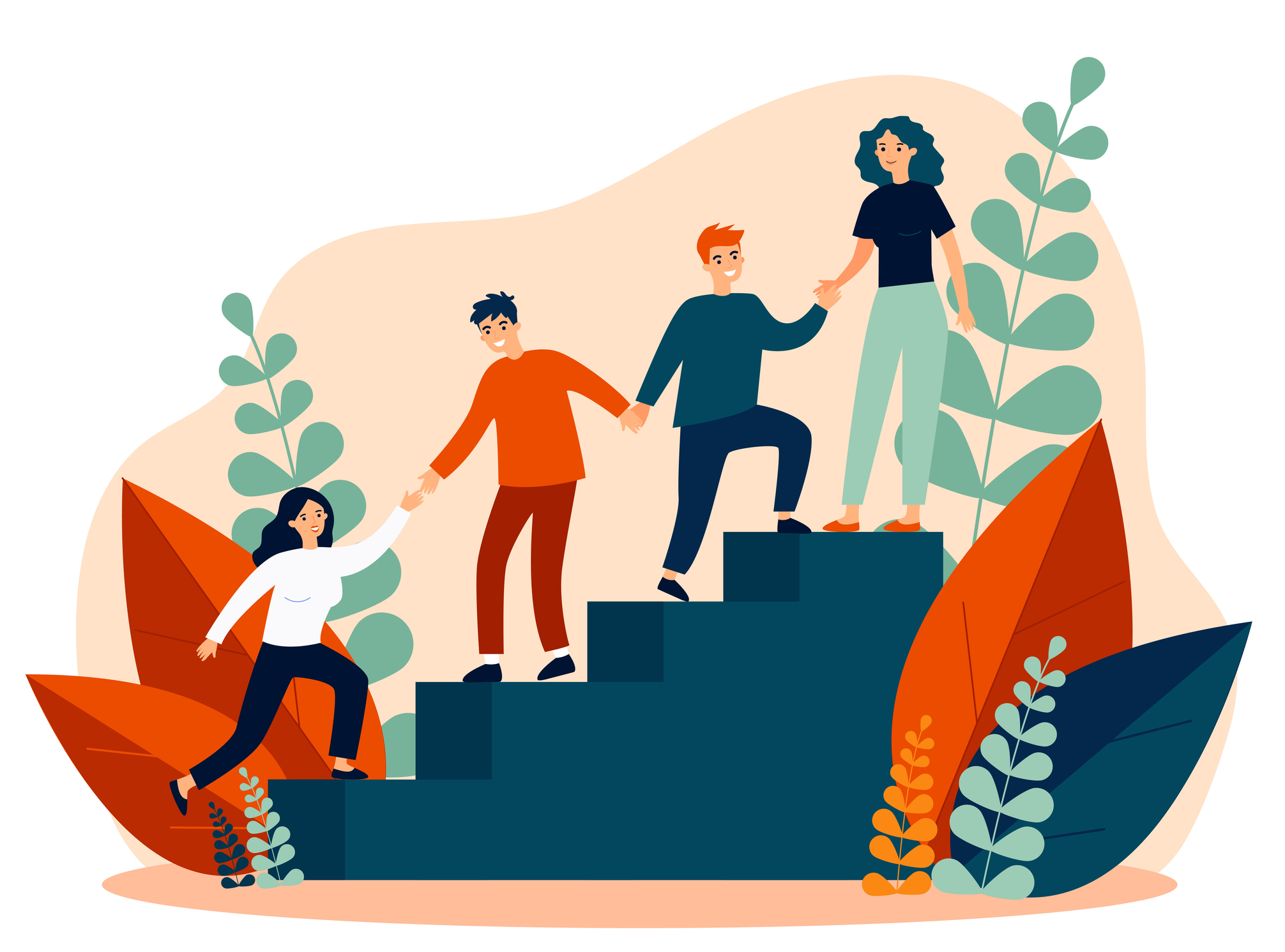We are pleased to announce our Spring 2024 interns at A&BC! Our internship program is…

In Conversation with Tim Hall: Self-Investment through the Creative Entrepreneur Fellowship
Tim Hall is known around the Boston music scene as a man who does it all. Given the opportunity to reflect on his artistry during the pandemic, Tim is ready to rediscover himself as an artist.
The Detroit native and Boston-based musician holds an impressive series of titles; he is currently an Assistant Professor in the Professional Music Department at Berklee College of Music, the Events Coordinator of BAMSFest, Co-Founder of HipStory, a saxophonist, a poet, and an A&BC Creative Entrepreneur Fellow, to name a few. However, being forced to stay home during the pandemic has allowed Tim to focus on finding a more forthright voice.
“There has definitely been time and space to create. There were a lot of rehearsals and gigs and photoshoots … All these things you had to do and now, in these last 100 days, it’s ‘Ok, you can just focus on practicing, you can focus on finishing this album, you can focus on new content, you can focus on your website, you can focus on your business structure’, really building out those things.”
While Tim continues to fortify himself as an individual artist, he acknowledges that much of his best work relies on collaboration with other musicians.
“I want to facilitate that experience of creating music with other songwriters. I feel that my best work is made with other folks. I get my ideas started, but once I bring folks into the fold, it goes to a different place, and I really want to push myself to go to that place and get to that next phase of me as an artist, and that’s done through collaboration.”
Tim feels a deep cultural connection to collaboration and community. He recognizes that the necessity of social distancing has stifled the ability to collectively process racial violence and civil unrest at a community level.
“In my personal experience, community and connection have always been a part of Black culture. It is how we survived; it is how we root ourselves in who we are. To be going through the pain of experiencing what’s happening racially in America right now, simultaneously being isolated … that’s exponentially hard. It’s like being stuck in a clear box and all you see around you is destruction and you can’t do anything about it.”
For Tim, racial injustice does not exist in the abstract. “I’ve been writing about my lived experience in America since I started writing poetry in college,” he explained. “So there never has been a point where it hasn’t been about what’s going on. The poetry that I write specifically speaks to my experience as a Black person. I channel what I go through and what I engage with in my writing.”
“I live in East Boston, I have a dog,” Tim explained. “If I have a late night, I’m sometimes taking the dog out at 1, 2 am. For me to have to prepare myself to go outside at those hours requires me to make sure I have my wallet, to make sure my phone is fully charged, to not have headphones in, to maybe choose certain blocks that are more well-lit than others. That’s just to go outside and walk a dog. The level of mental preparation to do basic things is trauma response for Black people. To live in that, especially during this time of isolation … it’s very difficult to manage that sometimes.”
In the middle of this, Hall has found solace in his commitment to strengthening the arts community of Greater Boston and amplifying marginalized voices through his work with BAMSFest, a volunteer organization that strives to breakdown racial and social barriers to arts, music, and culture for communities of color across Greater Boston, and HipStory, which has recently turned its house party series into virtual benefit concerts.
“I do have an outlook that things will get better, but it’s not going to get better without a fight, without work. I think building an organization like BAMSFest, building an organization like HipStory, allows me to put my energy, my talents, my mind, everything that I have, into the missions and the visions of those organizations, which ultimately are about survival and the amplification of Black bodies, of Black art, of individuals who are often erased, who are often seen as other, who are often not given their due, who exist within an industry that has commodified their culture, our culture, my culture, that has taken the impact of what we’ve created and thrown away the work and the labor that it took to get to that, to create that thing.”
This work is not only personally restorative for Hall but also an extension of himself and an investment in himself and his community.
“It is my investment in the bettering of myself as a creator and of others who are in my community and in my network, who are also trying to create something and do something dope, who deserve the spotlight, the limelight, and the support. I love being a part of the infrastructure of this community and having been able to contribute in the ways I’ve been able to.”
Continuing his work with HipStory throughout the pandemic has proved to be a challenge for Hall, but his entrepreneurial skills and innovative nature have allowed him to rise to the occasion.
“We’ve been able to curate our HipStory House Party series, except in a digital space. HipStory House Party Digital is a virtual performance series where we highlight artists and DJs. For the remainder of the year, the series will also be two-fold. We will be partnering with additional community sponsors to promote the event, but each event will also raise money for a local and national organization doing the work in the community.”
If there’s one thing Hall wants future applicants to the Creative Entrepreneur Fellowship to do, it’s to take advantage of every opportunity thrown at them. In particular, Hall is especially grateful for his experiences meeting individually with Candelaria Silva-Collins, a longtime consultant and nonprofit professional who works with the A&BC, and the organization’s assistance in the process of filing an LLC for HipStory.
“You have access to services that you would normally have to pay so much money for, so take advantage of it, even if it’s slightly overwhelming. I’d much rather folks be overwhelmed and take full advantage of what programs like these have to offer than be comfortable and miss out.”
His formidable commitment to the fellowship program was a way for Hall to hold himself accountable for investing in himself as an artist and as an entrepreneur.
“[The Fellowship] allows you to think about your artistry as more than just the art, but also the business. You have to want to think about your artistry as a business, but once you’ve made that your vision, you end up working smarter and not harder over time. Be prepared to push yourself outside of your comfort zone. Be ready to learn. It’s more than just attending the monthly meetings. Show up to meetings, but then take that information and apply it to your artistry.”
So, what’s next for the multi-dimensional artist?
“Next is: ‘What does my work actualize to in terms of a physical tangible thing?’ My band is working on a single release, as well as on a partnership with the Boston Symphony Orchestra, and I’m working on a series of smaller projects. It will either be a series of EPs, like 4 to 5, or a stronger, longer piece that might be more like 10 to 12, still kind of figuring that out. My first project, Colors of My Soul, was a spoken word album. It’s really just my beats and me doing spoken word on top of it. This next project will be more produced in terms of facilitated experience between musicians and writers, more getting into song form. So, creating something that’s more than just like easy listening, something that you might actually hear on the radio, or something that you might hear from a DJ. Something that has more of the full impact of a written song, along with the same nuances of me as a saxophonist and as a poet.”
Hall encourages readers to be on the lookout for new work from him in the coming months, and he sends his love to each of the Creative Entrepreneur Fellows he feels blessed to have met.


